UK City of Culture 2021: Can Coventry rise up from grimy decline?
- Published
- comments

Young ska fans in Coventry in 1980
What was it like growing up in Coventry, and how can being UK City of Culture in 2021 help it continue to regain its confidence?
Going to school in Coventry in the 1970s, there was what probably nobody yet called a shared narrative about the big, busy city we all lived in.
The storyline was a bit depressing, but it was pretty undeniable.
Coventry had attracted tens of thousands of newcomers, such as my parents, in the 1950s.
In the 1960s jobs were plentiful and wages high - it felt like a city going places and there was an air of renewal after the destruction brought by World War Two.
Coventry was never exactly overloaded with high culture - but by the end of the 1950s the Belgrade Theatre was an important venue and from 1965 the University of Warwick boomed on the city's leafy southern fringes.
(Visitors are often surprised at how attractive the surrounding countryside is.)
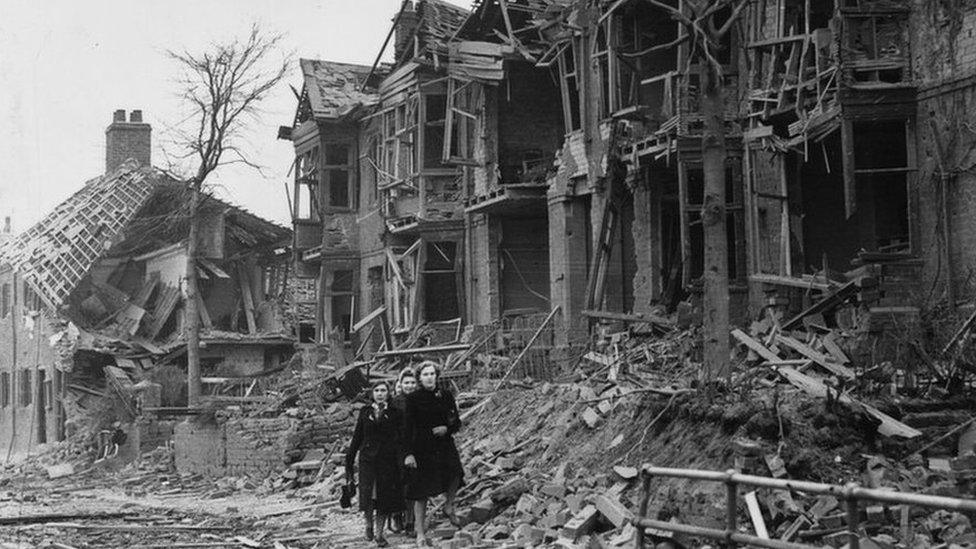
Raids on Coventry during World War Two sent the people of the city into a state of shock
Basil Spence's modern designs for the new cathedral, consecrated in 1962, had been praised around the world.
The Locarno Ballroom in the shopping precinct may not have been quite as classy but it saw a little bit of pop history - it's where in February 1972 Chuck Berry recorded My Ding-a-Ling live in front of an appreciative Coventry crowd. (The building later became the Central Library.)
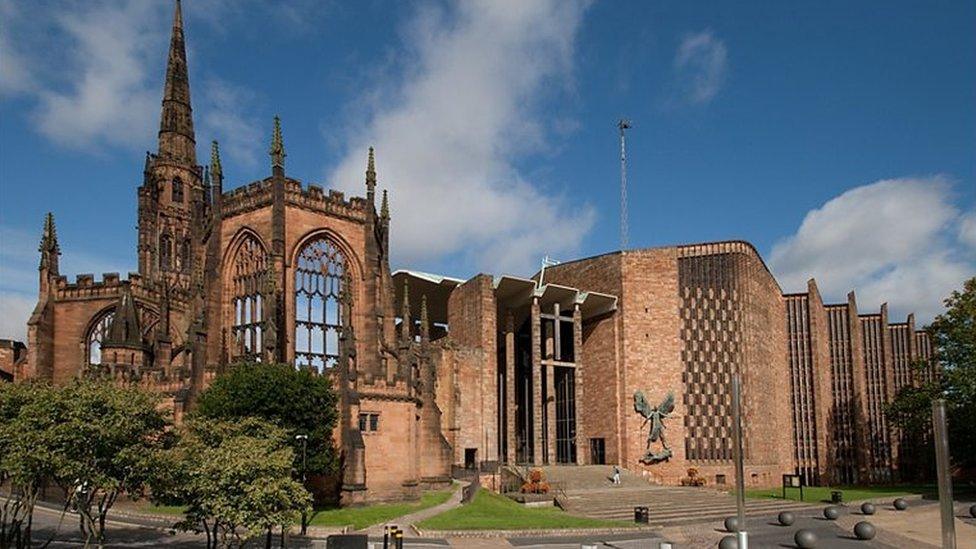
The cathedral recently received an £870,000 grant for repairs
But things were starting to go wrong.
By the mid-1970s, a universal belief set in that the golden years had gone.
Decline in the manufacturing industry combined with IRA terrorism - and the city's reputation as a centre of vibrant and optimistic working-class culture was lost.
Later, 2 Tone Records helped launch a nationwide Ska revival.
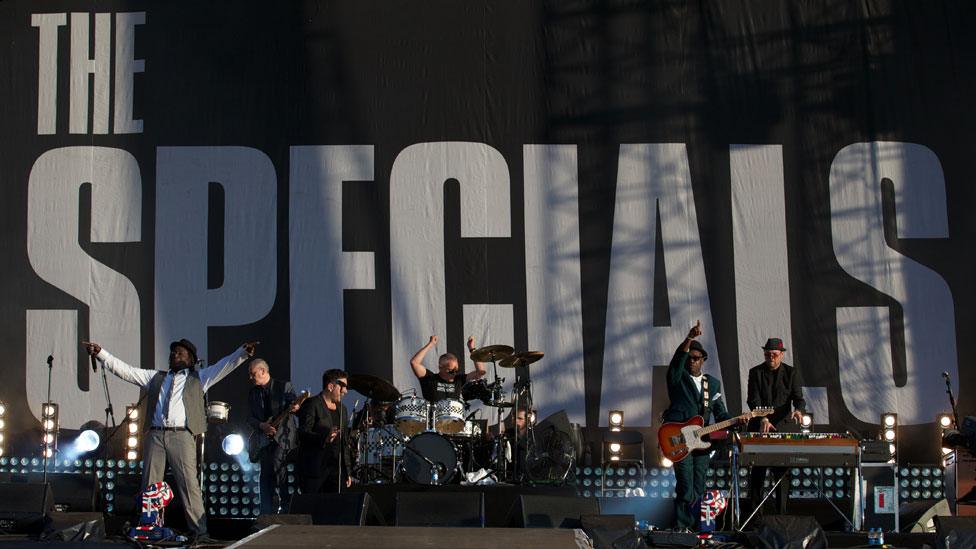
Still singing: The Specials performed at the the 2012 Olympics' Closing Ceremony gig at Hyde Park
But it seemed fitting that The Specials' big hit was Ghost Town, about urban decay.
Most of the city centre cinemas closed, along with the 2,000-seat Coventry Theatre.
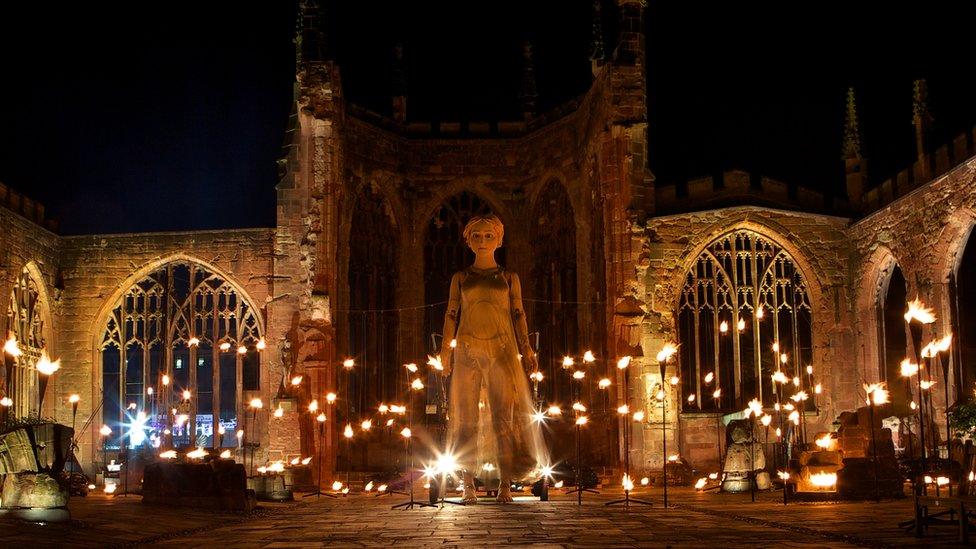
Godiva Awakes, in the Coventry Cathedral ruins, was part of the 2012 Cultural Olympiad
By the late 1980s, many Coventrians looked on their city with something approaching despair.
The city centre was taking on a look of permanent, grimy decline.
For 25 years, Coventry seemed incapable of playing the role nationally that a city of a third of a million people people should.
But very slowly it regained its confidence.
So its selection as UK City of Culture 2021 - which surprised some - comes at a perfect time to put some wind beneath the city's wings.
Some of the benefits may be institutional.
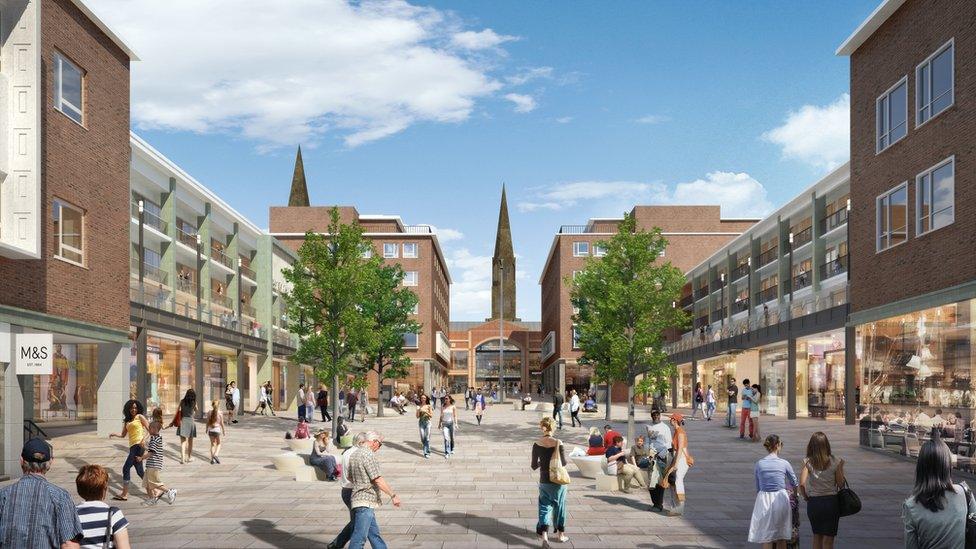
Earlier this year plans were revealed for a £17m redevelopment of Coventry's city centre
Why doesn't the Belgrade enjoy funding to give it the standing of successful regional theatres in Sheffield and Northampton?
Why only two years ago was there serious discussion of closing the Herbert Art Gallery and Museum, potentially a leading regional venue?
But there may be another reason why Coventry was the right choice.
After the bombing of World War Two, Coventry became a focus for building afresh in ways beyond the merely physical.

The winning city was announced in the current UK City of Culture, Hull
The city, with a superb new cathedral at is heart, was at the forefront of forging a new and open relationship with Europe.
The European Commission has just told the UK it is no longer eligible to provide the European Capital of Culture in 2023.
Perhaps when it came to the UK scheme, Coventry, with its history of renewal and reaching out to Europe, wasn't a totally surprising choice after all.

Follow us on Facebook, external, on Twitter @BBCNewsEnts, external, or on Instagram at bbcnewsents, external. If you have a story suggestion email entertainment.news@bbc.co.uk, external
- Published8 December 2017
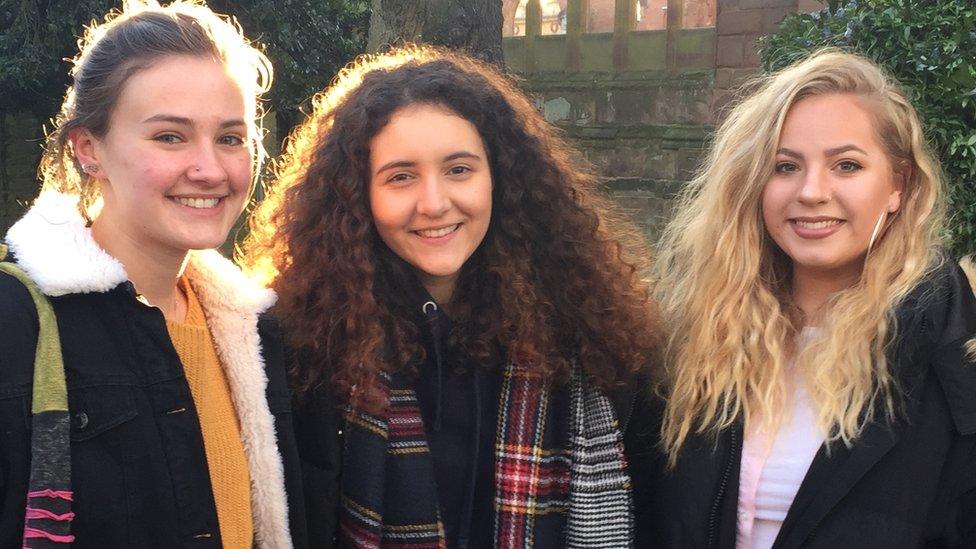
- Published8 December 2017
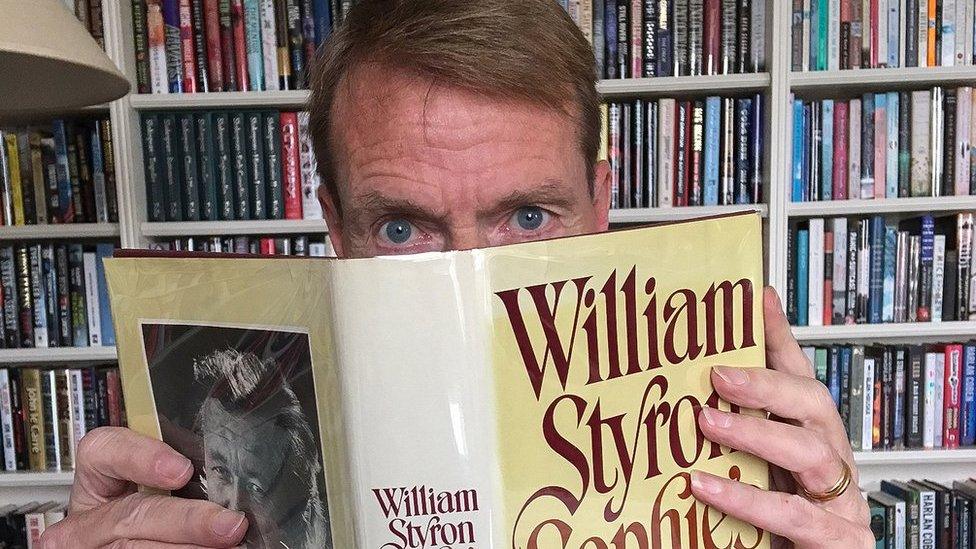
- Published7 December 2017
